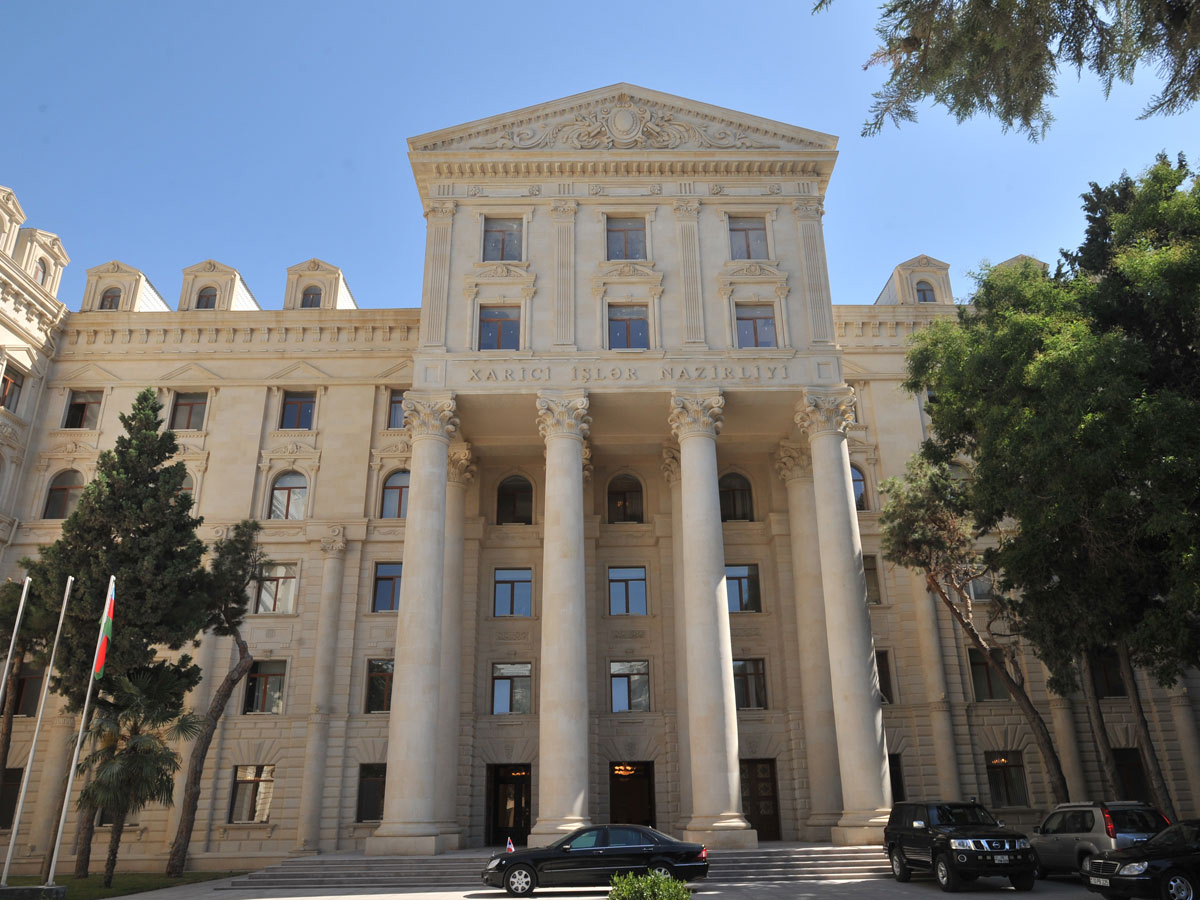Baku, Azerbaijan, May 5
Trend:
Azerbaijan has urged the International Committee of the Red Cross (ICRC) to increase its efforts for releasing the Azerbaijani citizens Dilgam Asgarov and Shahbaz Guliyev taken hostage by Armenians, said Azerbaijan's Deputy Foreign Minister Khalaf Khalafov.
He made the remarks at a meeting with the ICRC president Peter Maurer May 5, Azerbaijan's Foreign Ministry said.
Maurer, in turn, noted that the ICRC keeps this issue in focus and will continue its activities in this regard in line with its mandate.
During an operation in the Shaplar village of Azerbaijan's occupied Kalbajar district in July 2014, the Armenian special forces killed an Azerbaijani, Hasan Hasanov, and took hostage two other Azerbaijanis, Shahbaz Guliyev and Dilgam Asgarov.
A "criminal case" was initiated against them. Afterwards, a "court" sentenced Asgarov to life imprisonment and Guliyev to 22 years in prison.
During the meeting, Khalafov also briefed the ICRC president about the escalation of situation on the line of contact between Armenian and Azerbaijani armies in early April, the intensive shelling of Azerbaijani civilians along the line of contact, and about the casualties.
On the night of April 2, 2016, all the frontier positions of Azerbaijan were subjected to heavy fire from the Armenian side, which used large-caliber weapons, mortars and grenade launchers. The armed clashes resulted in deaths and injuries among the Azerbaijani population. Azerbaijan responded with a counter-attack, which led to liberation of several strategic heights and settlements.
Military operations were stopped on the line of contact between Azerbaijani and Armenian armies on Apr. 5 at 12:00 (UTC/GMT + 4 hours) with the consent of the sides, Azerbaijan's Defense Ministry earlier said. Ignoring the agreement, the Armenian side again started violating the ceasefire.
The conflict between the two South Caucasus countries began in 1988 when Armenia made territorial claims against Azerbaijan. As a result of the ensuing war, in 1992 Armenian armed forces occupied 20 percent of Azerbaijan, including the Nagorno-Karabakh region and seven surrounding districts.
The 1994 ceasefire agreement was followed by peace negotiations. Armenia has not yet implemented four UN Security Council resolutions on withdrawal of its armed forces from the Nagorno-Karabakh and the surrounding districts.






